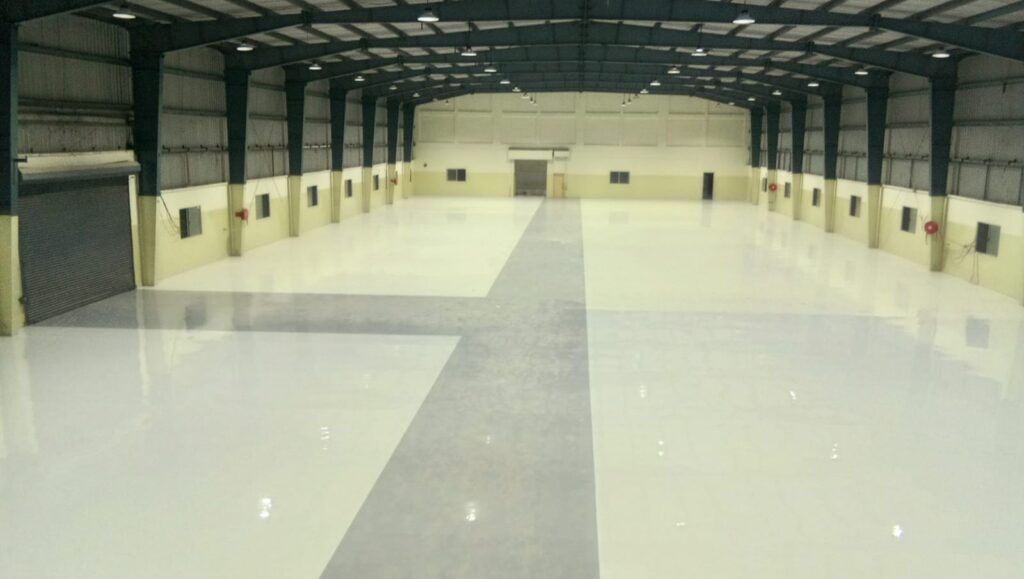HYGIENE FLOORING
Hygiene flooring is engineered with non-porous materials and seamless installation to prevent the infiltration of contaminants, ensuring a sanitary and easy-to-clean surface, making it ideal for healthcare facilities and food processing plants.

Why Hygiene flooring is important ?
- Hygiene flooring plays a crucial role in various industries and settings, offering a range of technical benefits that contribute to maintaining clean and safe environments. Whether in healthcare facilities, food processing plants, laboratories, or even residential kitchens, hygiene flooring is designed to meet stringent standards and deliver essential technical advantages.
- Antimicrobial Properties: Hygiene flooring materials are often engineered with antimicrobial additives. These additives inhibit the growth of bacteria, mold, and fungi, helping to prevent the spread of infections and illnesses. In healthcare settings, this is particularly vital for patient safety.
- Easy to Clean and Maintain: Hygiene flooring is designed to be easily cleaned and sanitized. Its smooth, non-porous surface prevents dirt and contaminants from getting trapped, allowing for efficient cleaning with standard disinfectants and cleaning agents. This is essential for meeting hygiene and sanitation standards in healthcare, food processing, and pharmaceutical industries.
- Chemical Resistance: Many hygiene flooring materials are resistant to a wide range of chemicals, including harsh disinfectants and cleaning agents. This makes them suitable for environments where chemical spills are common, such as laboratories and industrial facilities.
- Seamless Installation: Hygiene flooring can be installed seamlessly, minimizing the number of joints and seams where dirt and bacteria can accumulate. This is crucial in environments where cleanliness is paramount, as it reduces the risk of contamination.
- Slip Resistance: A technical aspect often overlooked is slip resistance. Hygiene flooring is designed to provide a safe and secure footing, even in wet or greasy conditions. This is particularly important in commercial kitchens and food processing areas, where slip and fall accidents can be a significant hazard.
- Durability: Hygiene flooring is built to withstand heavy foot traffic, machinery, and equipment, ensuring long-term durability. It can resist wear and tear, maintaining its hygienic properties over time.
- Compliance with Regulations: Many industries are subject to stringent regulations and standards governing hygiene and sanitation. Hygiene flooring is engineered to meet or exceed these requirements, providing a technical solution that helps businesses and organizations stay in compliance with the law.
- Thermal Stability: In certain settings, hygiene flooring needs to withstand extreme temperature variations, such as in industrial kitchens or cold storage facilities. Specialized hygiene flooring materials can maintain their integrity and hygiene properties in these conditions.
- Aesthetic Options: Hygiene flooring doesn’t have to sacrifice aesthetics for functionality. It comes in a variety of colors and designs, allowing businesses to create visually appealing spaces while maintaining high hygiene standards.
Our Other Industrial Flooring Services
If you’re looking to learn more about our industrial flooring services, We’re here to provide you with detailed information and assistance.
